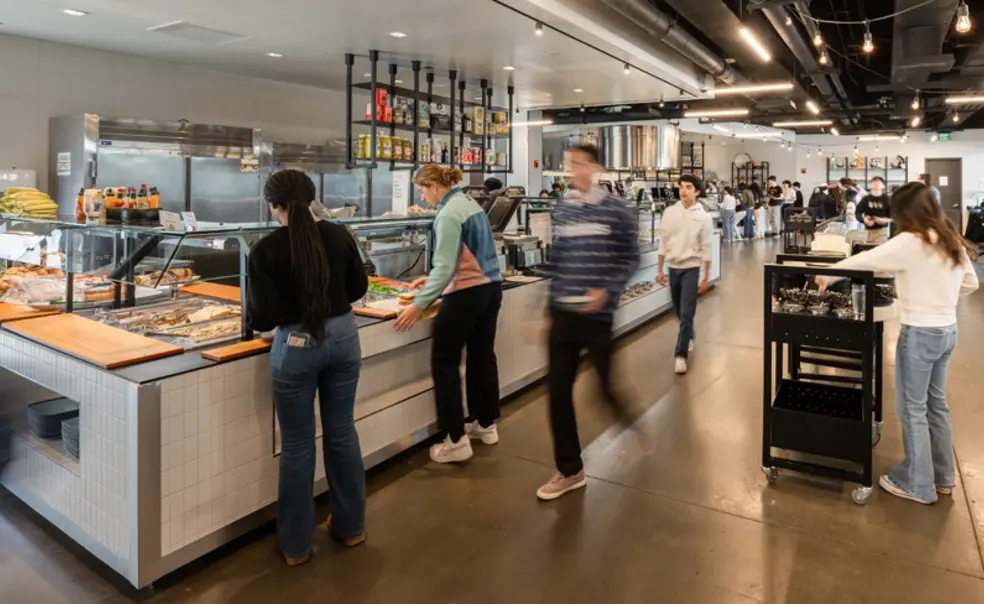Princeton Responds to Criticism by Changing Course on Meal Plan Policy
University will cover two-meals-per-week plan for all students following blowback from students and alumni
Princeton will cover the cost of the required two-meals-per-week dining plan for all students next year, effectively removing the controversial new requirement for students not on financial aid who are in eating clubs and co-ops to pay for a dining plan in addition to their club or co-op meals. Students not in an eating club or co-op will now be required to purchase a meal plan with eight meals per week, plus the two weekly meals covered by the University, replacing the previous requirement to purchase a 10-meals-per-week plan.
This change follows a Sept. 29 announcement mandating that all students in University housing select a Campus Dining meal plan and eliminating the independent option for upperclass students. The University said that the policy aimed to prioritize student well-being and was partially due to budget constraints. Prior to this, upperclassmen had received two free meals per week in the dining halls from the University.
The update was announced by Chad Klaus, vice president for university services, at an Undergraduate Student Government (USG) meeting Sunday evening and shared with the student body in an email on Monday. According to Klaus, input from USG and students at two feedback sessions last month was crucial in refining the plan. The proposal for a no-cost “Block 32” (two-meals-per-week) plan originated with USG at an April 21, 2025, University Student Life Committee meeting.
For students not in an eating club or co-op, the change lowers annual meal costs to $3,600 from $4,500 per year, leaving students on full aid with about $10,000 to cover other food, books, and personal expenses. Combined with the Block 32 plan, the students will still have 10 meals per week. For all students, meals can be used over fall and spring break, in addition to Late Meal.
Following the initial September announcement, students and alumni criticized the proposed dining plan on social media, in op-eds, and through sustained activism. The Graduate Interclub Council (GICC) flew a plane over the Oct. 25 homecoming football game as part of its “Don’t Harvard Our Princeton” campaign and distributed T-shirts protesting the changes. (Harvard requires students in undergraduate housing to purchase a meal plan.) Members of eating clubs and co-ops raised concerns about financing the two meal plans, while co-op leaders stressed about capacity. Independent students cited worries over financial constraints, kitchen access, and social reasons.
“It was great to see the overwhelming support for the Street from students and alumni and we appreciate that the University was willing to listen and amend their policy,” Hap Cooper ’82, the president of the GICC, told PAW. “We look forward to continuing to work closely with University administrators to continually improve the student experience.” The Interclub Council did not respond to a request for comment by the time of publication.
The University and USG leadership are working together to determine how Spelman Hall rooms, previously prioritized for independent students, will be allocated in the future. As of now, each student will receive a single draw time with all eligible rooms listed, rather than separate draws at multiple times. Klaus said that a final decision will be made by Thanksgiving Break, in consultation with students. According to Enzo Kho ’26, the president of USG, more than 20 people are currently reviewing that proposal.
The plan follows recommendations from the Huron Consulting Group’s 2024 report, which advised that the University require Campus Dining meal plans for all upperclassmen and review the independent status. According to a pamphlet from Klaus, Rochelle Calhoun, the vice president of campus life, and Michael Gordin, the dean of the college, the Block 32 plan will provide students the ability to build community over a meal, regardless of their dining plan, and will ensure that students have access to healthy, convenient food throughout the academic year.
“We’re incredibly grateful to the University administration for being committed to taking in student engagement and utilizing that. Moving forward, we’ll continue to be persistent about matters that are important to students,” Aishwarya Swamidurai ’26, the USG vice president, said during the meeting.












2 Responses
David Galef ’81
1 Month AgoOn Budget, Endowment, and Student Meal Plans
“Princeton Responds to Criticism by Changing Course on Meal Plan Policy,” reads one headline in a recent PAW, and the article notes, “The University said that the policy aimed to prioritize student well-being and was partially due to budget constraints.” But another article in the same issue is headlined “Princeton Endowment Earns 11% Return, Reaches $36.4 Billion.” Still trying to understand the budget issue.
V. Lynn Hogben ’77
2 Months AgoUnfortunate Policy Change for Independents
As an alum who was an “independent” my junior and senior years at Princeton without benefit of any room draw preference (I lived in the no-longer existent 1941 and Witherspoon and used the common area kitchens), I think the University’s decision to require independents to buy a meal plan is unfortunate.
Being independent has two benefits, saving money and learning to cook for yourself before you have to deal with other issues in the real world. Requiring payment for a meal plan that provides a meal a day or more for those who do not want to have to cook with a group (which is not the situation most people will find themselves in after graduation) reduces the cost savings and completely eliminates the beneficial learning experience. Once a student is required to pay for at least one meal a day, the incentive to use that for the most complete and expensive meal is enormous. Thus, independents forced to pay for eight meals a week will probably not cook for themselves at all and simply eat food that requires little or no preparation (such as yogurts, cereals, sandwiches, or snack foods) for those meals that they provide themselves. I’m glad that Princeton did not have this policy when I was there.